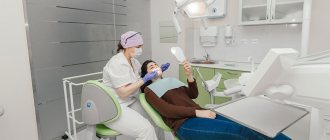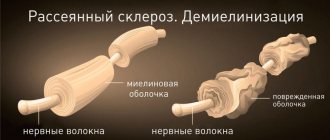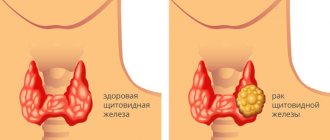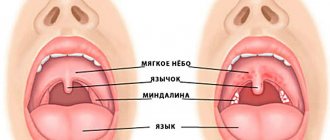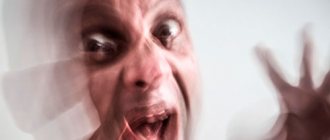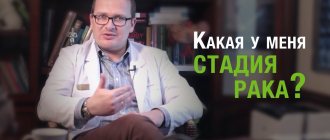Constipation is a very delicate problem. It is not customary to discuss it with friends and relatives. But according to statistics, about 15% of the world's inhabitants suffer from chronic defecation retention. Pathology not only causes discomfort, but also harms health.
Toxins present in feces penetrate into the blood and spread throughout the body. As a result, symptoms of intoxication appear. To avoid such complications, constipation should be treated without delay.
It is worth noting that chronic constipation is a functional disease. Diagnostics plays a special role in choosing the right treatment tactics, so it is often difficult to do without the help of a doctor, especially if we are talking about a serious defecation disorder.
In some cases, the causes of constipation are known to a person, and correction of the condition is not difficult; in others, treatment of the underlying pathology and special measures will be required. In the article we will look at the main causes of constipation and ways to get rid of the disease.
Causes
The most common cause of constipation is a nutritional factor - dietary habits. This problem concerns many adults in the modern world: the frantic pace of life and irregular food intake, the predominance of refined, soft, ready-to-eat foods in the menu - all this leads to a delay in bowel movements and changes in bowel activity.
Researcher Rykova in her work points out that “improper nutrition can provoke the development of constipation, which develops as a result of a decrease in the volume of food and water consumed, a decrease in dietary fiber in the diet, excessive consumption of animal proteins, as a result of increased extraintestinal fluid loss (polyuria) "(Rykova S. M., 2021, p. 28).
Other common reasons include the following:
- irritable bowel syndrome (IBS);
- structural and other disorders of the intestinal structure: lengthening or shortening, strictures (narrowing), etc.;
- anorectal disorders: anal fissure, hemorrhoids, etc.;
- gallbladder disease;
- metabolic disorders, endocrine and neurological diseases;
- systemic pathologies;
- chronic intoxication, etc.
An unhealthy lifestyle is a serious risk factor for developing constipation. This may include consciously suppressing the urge to defecate when a person does not have enough time or is not able to calmly visit the toilet.
Lack of movement also leads to delayed bowel movements - sedentary work or prolonged bed rest due to illness, injury, etc.
Doctors emphasize that constipation can be a side effect of taking certain medications.
For example, researchers Ismailov and Skvortsov provide the following data in their work: “This is most characteristic of atropine, narcotic drugs, some anticonvulsants (difenin), calcium bicarbonate (baking soda). Psychotropic drugs (tranquilizers, antidepressants), some diuretics, iron preparations, aluminum hydroxide (Almagel) can cause constipation" (Ismailov I. Ya., Skvortsov V. V., Fedotova I. V., Kalinchenko E. E., 2021, p. 16).
What do we have to do
To treat constipation and eliminate discomfort, you can use folk remedies, but this is only if the early stage is observed, the patient can tolerate it or there is no opportunity to immediately consult a doctor. What can be prepared from folk remedies: a decoction that includes rhubarb root, hay leaves. Fill the plants with water in an amount of 200 mg, keep on low heat for 20 minutes, then dilute with water. Once taken, it will begin to act within 8-10 hours.
If you don’t have the strength to endure this amount of time, contact a specialist. He will conduct a diagnosis, determine the cause of bowel problems, and prescribe a course of treatment. Take into account! Taking medications is possible only under the strict supervision of a doctor.
When to see a doctor
To combat the disease, you need to change your daily routine, include foods that have a laxative effect in your diet, spend more time outdoors, and take walks. You need to change your sleep patterns and avoid stressful situations.
If you have done all this, and the problem has not disappeared within 2-3 weeks, this is a reason to make an appointment with a doctor.
After the examination, the specialist will determine the degree of threat, prescribe treatment at home, or admit you to the hospital of JSC “Medicine” (clinic of Academician Roitberg), you will find more information here.
Types of constipation
Constipation is classified according to the reasons for its development into the following types:
- Primary: functional constipation, including those developing against the background of IBS or weakened defecation reflex, as well as organic - structural and inflammatory changes in the intestine.
- Secondary: peptic ulcer, diseases of the endocrine system and nervous system, intoxication, systemic muscle damage, etc.
According to the mechanism of development and etiological characteristics, the following types of constipation are distinguished: +
- nutritional – explained by the specifics of the diet;
- neurogenic - associated with disruption of the nervous system;
- psychogenic - develops against the background of psycho-emotional factors, including the so-called false shame, inability to visit a public toilet, etc.;
- proctogenic - constipation due to diseases of the anorectal area, fissures, narrowing, inflammatory changes accompanied by pain;
- iatrogenic - associated with taking medications;
- toxic - formed against the background of human poisoning with lead, mercury vapor, etc.;
- constipation in the presence of mechanical obstacles in the form of tumors, narrowings, scar changes, benign formations such as polyps, etc.
According to the characteristics of the course in adults, acute and chronic constipation are distinguished. An acute condition may include stool retention for the first time recently (up to three months). There is no bowel movement for several days.
Chronic constipation has clear criteria. The doctor will make such a diagnosis if there are simultaneously two or more signs observed over the past 3 months:
- bowel movements less than three times a week;
- dense, dry, fragmented feces;
- the need to strain in 25% of cases;
- straining takes at least ¼ of the defecation process;
- need for manual assistance during defecation;
- feeling of incomplete bowel movement, foreign object in the rectum, pressure.
Chronic constipation may be accompanied by other symptoms.
Which doctor should I contact?
Do not delay your visit to a specialist; when the first symptoms appear, make an appointment with a gastroenterologist, you can do this here.
The doctor will familiarize you with the symptoms, provide advice, conduct diagnostics, and prescribe tests. You may need to visit other specialists, for example, a therapist, proctologist, make an appointment on the website or by phone (for English-speaking patients), +7 (495) 775-73-60 (lines work around the clock), you can also use the form on the website .
JSC "Medicine" (clinic of academician Roitberg) is located in the center of Moscow, 2nd Tverskoy-Yamskaya lane (metro stations "Mayakovskaya", "Tverskaya", "Belorusskaya", "Novoslobodskaya").
Symptoms and manifestations
Constipation is accompanied by various symptoms depending on the reason for which it occurs. In rare cases, stool retention is the only worrying sign.
The rhythm of bowel movements varies from person to person. Therefore, it is difficult to call constipation a bowel movement that occurs once every 2 days, if such a rhythm is natural for a person and persists throughout adult life, and there are no alarming symptoms.
Constipation is defined as having a bowel movement less than once every 2-3 days. Other symptoms include abdominal discomfort and the need to strain.
It is worth noting that defecation during constipation can be daily, but at the same time a very small amount of feces is separated (less than 100 g), and the feces themselves are dense, dry, fragmented (the so-called sheep or bean-shaped feces). When the intestinal lumen is narrowed, the contents may have a ribbon-like shape.
In some cases, a symptom of constipation is stool with mucus. With a long delay in emptying, diarrhea develops, and the feces will be heterogeneous: the first portion is dense and compressed, the second is liquid with mucus.
With constipation, abdominal pain of various localizations, a feeling of discomfort, pressure, irritation, and heaviness most often occur.
In irritable bowel syndrome, constipation is accompanied by pain, especially before bowel movements. The pain subsides after natural bowel movements or emptying as a result of taking laxatives. Stool retention is often accompanied by flatulence - increased gas production, rumbling in the stomach, frequent passage of gas, and bloating.
It should be understood that a large amount of gases aggravates the problem and slows down the movement of feces through the intestines.
With chronic constipation, symptoms of general intoxication sometimes develop, which is associated with constant poisoning of the body by the decomposition products of feces. Many patients note decreased appetite, fatigue, headaches and dizziness, unhealthy complexion, dry skin, decreased mood, nausea, lack of appetite, deterioration in performance and concentration.
With a special character, sleep disorders, neurasthenic disorders, suspiciousness and anxiety often develop.
Diagnostics
Adults with complaints of constipation are referred for examination to a gastroenterologist. The doctor collects anamnesis and provides a physical examination. The complex of mandatory diagnostic measures for defecation disorders includes modern instrumental methods for studying the gastrointestinal tract, clarifying laboratory methods. The most informative are:
- Irrigoscopy
. The double contrast method allows you to evaluate the anatomical and functional features of the large intestine, detects deformations of the intestinal contours, space-occupying formations and filling defects. For a detailed study of the digestive system, barium passage radiography is used. - Colonoscopy
. An endoscopic examination is designed to thoroughly examine the intestinal mucosa and detect diseases that manifest as constipation. During the study, a biopsy of the intestine is performed to clarify the causes of the disease. In the obtained biopsy samples, the cellular composition and the number of intramural nerve ganglia are assessed. - Sonography
. Ultrasound of the abdominal cavity is informative for the diagnosis of tumor neoplasms and adhesions. An ultrasound examination of the umbilical ring and the outer ring of the inguinal canal is recommended to exclude hernial protrusions or strangulation of intestinal loops. Women must undergo an ultrasound of the pelvic organs. - Coprogram
. The dry, hard consistency of feces, “sheep” or “pencil” feces, is determined macroscopically. Microscopic examination reveals an increased content of leukocytes and rotting products. An analysis of stool for helminth eggs, bacteriological culture, and the Gregersen reaction to detect occult blood are indicated. - Blood
tests . An advanced biochemical analysis is performed, measuring the concentration of glucose and electrolytes. It is necessary to establish the amount of free thyroxine and pituitary TSH. If glucose intolerance is impaired, an oral stress test is performed. To exclude chronic posthemorrhagic anemia, a clinical blood test is performed.
Complications
The causes and consequences of constipation may be interrelated. For example, with proctogenic constipation, complications in the anorectal area develop faster: if defecation delay is associated with the appearance of hemorrhoids, then this condition will quickly lead to exacerbation of inflammation, thrombosis and other complications.
Complications from the digestive system such as:
- inflammatory diseases: colitis, proctitis, etc.;
- intestinal diverticulosis;
- stretching of the walls of individual sections of the colon, or megacolon.
One of the most serious complications of prolonged delay in bowel movement is acute intestinal obstruction. It requires urgent surgical intervention. Obstruction, in which there is no timely assistance, threatens to result in necrotic changes and death.
With chronic constipation, the risk of developing atherosclerosis significantly increases due to increased cholesterol levels. In addition, delayed bowel movements are a risk factor for colorectal cancer.
Publications in the media
Constipation (constipation, obstipation) is difficulty in emptying the colon (colostasis) or rectum (coprostasis). • Constipation is characterized by the following symptoms •• decreased frequency of stool less than 3 times per week •• denser stool consistency (“sheep feces”) •• passage of a small amount of feces (less than 100 g) •• feeling of incomplete bowel movement after bowel movement •• prolonged or a multi-stage act of defecation, the implementation of which requires additional straining efforts or the use of special techniques and postures (straining time is more than 25% of the time of the act of defecation) • Normally, food taken within 8 hours after defecation is evacuated over the next 24 hours • Constipation may be a random episode (episodic or situational constipation) under temporary unfavorable conditions •• Long travel, the need to use an inadequate toilet •• Significant physical activity •• Steam bath •• Pregnancy •• Consumption of certain products (tea, cocoa, low content of ballast substances in food) •• Emotional factors (mental overload, depression) •• Iatrogenic constipation.
Frequency. Constipation occurs in 1–6% of healthy people, more often among children, and in people over 60 years of age, especially with a sedentary lifestyle, the incidence of the disease reaches 80%.
Etiology • Primary constipation (with intestinal diseases) •• Functional (habitual) constipation ••• Rectal constipation - disappearance or absence of the defecation reflex ••• Cologenic constipation - slowing of the intestinal passage of chyme as a manifestation of dyskinetic disorders ••• Dyssynergia of the pelvic floor muscles - disorder evacuation of feces associated with the lack of adequate relaxation of the anal sphincters and/or puborectal muscle loop during defecation •• Organic constipation (colitis, colon strictures, cancer and benign tumors, dolichosigma, idiopathic megacolon, etc.), as well as diseases rectum, accompanied by a pain syndrome that inhibits the urge to defecate (acute or chronic anal fissure, cryptitis, internal incomplete fistula of the rectum, hemorrhoids) • Secondary constipation is associated with extraintestinal diseases •• Reflex (with peptic ulcer, cholecystitis, nephrolithiasis, etc. ) •• Endocrine (myxedema, diabetes, hypercalcemia, etc.) •• Metabolic and toxic (lead poisoning, prescription of anticholinergics, ganglion blockers, iron supplements, diuretics, sedatives, etc.) •• Neurogenic (parkinsonism, spinal cord diseases, etc. ) •• Muscular diseases: myopathies, scleroderma and other diseases with damage to the muscles (diaphragm, abdominal wall) involved in the passage of feces and the act of defecation •• Psychogenic (psychopathy, schizophrenia, etc.) • Other causes: diet low in plant fiber combined with decreased fluid intake and insufficient physical activity, as well as frequent holding in bowel movements (the most common cause).
Genetic aspects - see Hirschsprung's disease.
Risk factors • Poor nutrition • Uncontrolled use of laxatives • Gastrointestinal diseases • Pathological processes in the anus and rectum • Disorders of nervous and endocrine regulation • Physical inactivity • Change of place of residence • Hereditary predisposition.
Clinical picture • Absence of stool for several days or weeks. In case of prolonged absence of stool, intestinal obstruction may occur • Local (abdominal) signs •• Feeling of pressure, distension in the rectum, its incomplete emptying after defecation (with rectal constipation); migrating pain, transfusion; rumbling in the abdomen and bloating (with colonic constipation) •• Hemorrhoids, papillitis, fissures and ulcerations of the anus due to damage by hard and copious feces •• Palpation of the abdomen - dilated and spastically contracted areas of the colon, in which it is often possible to detect dense feces masses, most often in the descending colon and sigmoid colon •• During digital examination of the rectum, fecal stones may be detected • Reflex symptoms •• Pain in the buttocks, sacrum, thighs, which arise due to the pressure of fecal masses on the sacral nerve roots •• Headache , dizziness, tachycardia, disappearing after defecation • General manifestations - weakness, malaise, loss of appetite, unpleasant taste in the mouth, coated tongue, nausea, low-grade body temperature, etc. The occurrence of these signs is explained by the toxic effect of indole, cresol and other metabolites, the formation and absorption of which in the intestine is increased during constipation.
Laboratory tests • Leukocytosis up to 15´109/l • Hyponatremia • Hypokalemia • IDA • Coprological examination: admixture of blood and mucus (for malignant neoplasms, Crohn's disease) • Study of intestinal microflora.
Special studies • Digital examination of the anus and rectum allows you to determine the tone of the external sphincter of the anus, tumors in areas of the rectal ampulla inaccessible to endoscopic instruments (immediately behind the anal canal) • Colonoscopy allows you to diagnose malignant tumors, polyps, various inflammatory changes • Irrigography helps identify the etiological factor, determine the localization of stagnation of contents in the colon, quantitatively assess the evacuation function of the colon • Evacuation defecoproctography is used for direct visualization of the act of defecation and assessment of the state of the pelvic floor • Anal manometry and profilometry record pressure levels in the anal canal at rest and during various functional tests .
TREATMENT
Diet. Regular meals (at least 3-4 times a day), at the same time. Sufficient (at least 1.5 liters per day) fluid intake, including soups, juices, mineral waters, dairy products. They recommend products that improve peristalsis (brown bread, raw vegetables and fruits, dried fruits, legumes, oatmeal, buckwheat, meat, pickles, marinades, drinks saturated with carbon dioxide, fermented milk drinks). For colitis, laxatives are given in quantities that do not cause exacerbation of the disease. In case of duodenal ulcer during an exacerbation, diet No. 1 is prescribed with an increased amount of substances that enhance peristalsis from among those allowed.
Management tactics • Regulation of the act of defecation (daily at the same time) • It is necessary to identify the etiology of constipation •• Treatment of symptomatic constipation - therapy of the underlying disease •• With independent (functional constipation), often caused by insufficient consumption of essential foods (deficiency of salts, vitamins , plant fiber) or liquid, as well as poor diet and decreased physical activity, good results are achieved using a corrective diet and exercise therapy •• Treatment of simple constipation (the result of slow movement of intestinal contents) is aimed at stimulating the intestines by increasing the content of fibrous components in the diet (for example, fruits, vegetables and swelling agents - hydrophilic colloids that retain water and electrolytes in the intestinal lumen) • Long-term use of strong laxatives should be avoided, because. they can lead to dysfunction of the intramural nerve plexuses of the colon.
Conservative treatment • Group I drugs - chemical laxatives. They cause a laxative effect by irritating the receptor apparatus of the colon and, thus, stimulating its peristalsis. Causes a single bowel movement 6–10 hours after ingestion. Drugs in this group include derivatives of anthraquines (preparations of senna, buckthorn, rhubarb), diphenylmethane (phenolphthalein, bisacodyl, sodium picosulfate), castor oil • Drugs of group II are osmotic laxatives that have the ability to retain water in the intestinal lumen, which leads to an increase in volume and softening of feces. Preparations in this group include sodium and magnesium sulfate, magnesium hydroxide, Carlsbad salt, and the non-adsorbable polysaccharide lactulose. They act at the level of the colon, the onset of laxative effect is 8–12 hours • Group III drugs - bulk laxatives or fillers help increase the volume of intestinal contents (bran, agar-agar, methylcellulose, seaweed, etc.) • Group IV drugs - laxatives oils (detergents) help soften hard feces and facilitate their sliding - petroleum jelly, almond oil, fennel oil, liquid paraffin. The laxative effect after taking them occurs within 4-5 hours • For constipation associated with impaired intestinal motor function, prokinetics are prescribed (cisapride 10 mg 3-4 times / day, trimebutine 100-200 mg 3 times / day), in the presence of a pronounced spastic component - myotropic antispasmodics (drotaverine, papaverine hydrochloride, bencyclane), calcium channel blockers: mebeverine 200 mg 2 times / day, pinaverium bromide 50 mg 3 times / day.
Surgical treatment is indicated when an organic cause of constipation is identified (tumor or stricture of the intestine, megadolichosigma) or the development of surgical complications (acute intestinal obstruction, intestinal perforation, peritonitis).
Prevention • Compliance with nutrition and diet • Active lifestyle • Physical education • Restoring the urge to defecate - going to the toilet at the same hours.
Complications • Acute intestinal obstruction • Volvulus • Abdominal wall hernia • Colon diverticulosis • Ulceration of the colon mucosa • Perforation of the intestinal wall • Rectal prolapse • Anemia.
Course and prognosis • Relapses are typical • With the development of surgical complications (perforation and peritonitis), the prognosis is unfavorable • Mortality with intestinal obstruction is high in infants and the elderly (more than 16%).
ICD-10 • K59.0 Constipation • K56.4 Other type of closure of the intestinal lumen
Treatment of constipation
If the pathology is not caused by diseases of the internal organs, the answer to the question of how to treat constipation in adults is simple. The main methods of restoring the functioning of the gastrointestinal tract are an active lifestyle and the use of products with a laxative effect.
Experts recommend:+
- introduce vegetables, rye bread with bran, fermented milk products, dried fruits, nuts, legumes into the diet;
- more often eat boiled beets seasoned with vegetable oil;
- replace butter and sour cream with unrefined vegetable oil;
- move more and walk in the fresh air;
- strengthen the abdominal muscles by performing special exercises;
- drink more pure still water - at least 8-10 glasses per day;
- stop smoking and limit alcohol intake;
- do not abuse enemas - they should be used only in extreme cases.
Thanks to these simple rules, it is possible to cure constipation in adults. However, in some cases, changing your diet and physical activity does not help. You have to resort to taking laxatives.
It is known that in the treatment of constipation, especially functional constipation, adding dietary fiber to the diet is effective. Include fresh vegetables and fruits, dried fruits, and cereals in your daily diet. An important component of treatment is taking laxatives, especially if you need to solve the problem in a short time. That being said, some laxatives (bulk laxatives) work on the same principle as dietary fiber from plants and supplements.
Bulk laxatives work as follows: they absorb water, increase the volume of stool, make it softer, changing the consistency, and stimulate the intestinal walls to contract. Faster, more comfortable, predictable bowel movements occur. Fibers can be synthetic and natural, of plant origin.
The natural preparation “Fitomucil Norm”, created on the basis of plant fiber, helps to quickly and delicately cure constipation in children and adults. This is what doctors often recommend. There are no flavoring additives or dyes in the modern English biocomplex.
It contains only natural ingredients - the shell of plantain seeds and the fruits of home plum. The natural composition is absolutely safe, so even children aged 3 to 14 years can drink the product as prescribed by a doctor.
There are few contraindications for use: individual intolerance to the components, acute inflammatory diseases, gastrointestinal obstruction.
"Fitomucil Norm" is not addictive even with long-term use. The product is recommended for use by the Russian Society of Obstetricians and Gynecologists and the Russian Association of Gastroenterologists. They can treat constipation in women while bearing and feeding a child.
The drug "Fitomucil Norm" has a complex effect on the body:
- has a gentle effect on the gastrointestinal tract, providing delicate cleansing;
- helps normalize your own microflora;
- removes toxins, reduces cholesterol and blood sugar levels;
- fights hunger;
The product “Fitomucil Norm” is a gentle and effective solution to a delicate problem. Before treating constipation, be sure to consult a gastroenterologist. The doctor will prescribe the necessary tests and determine the cause of the pathology.
There are other general recommendations for treating constipation in adults. It is important to eat small meals and avoid episodes of overeating or prolonged fasting. The best option is to eat at least 5 times a day.
Develop the healthy habit of getting out of bed immediately after waking up. Try to wake up so that you have enough time to go to the toilet in the morning (at least half an hour - the time the gastro-colitic reflex is triggered), monitor the regularity of bowel movements, try to build an individual rhythm of natural bowel movement.
This will be difficult for those who work irregular hours. If possible, it is better to choose an activity that will allow you to adhere to a strict daily routine.
If the reason lies in taking medications, stopping them or reducing the dosage without consulting your doctor is strictly not recommended. Visit a specialist and tell them that you are suffering from a side effect of the medication. The doctor will select an alternative or tell you about ways to overcome the problem without changing the drug.
In cases where constipation is caused by organic and other pathologies, treatment should be aimed at eliminating the underlying disease. So, for diabetes mellitus, the course of therapy will be selected by an endocrinologist, for liver diseases - a gastroenterologist or hepatologist, for disorders of the conduction of nerve impulses and diseases of the nervous system - a neurologist, etc.
Diagnosis and examination for constipation
Diagnosis of constipation begins with determining its nature4. A detailed questioning and examination of the patient allows the doctor to determine whether colostasis is acute or chronic, to exclude nutritional, that is, nutrition-related, causes of stool disorders, and if they are identified, to select a diet to normalize stool4.
If it is determined that there are no food causes of stool retention, first of all, it is necessary to exclude the most dangerous tumor diseases4. For this purpose, X-ray examinations of the intestines are carried out, as well as sigmoidoscopy and colonoscopy - examination of all parts of the large intestine using special endoscopic equipment.
Ultrasound, MRI and laboratory tests of blood, urine, and feces help diagnose diseases of internal organs and endocrine diseases accompanied by problems with defecation.
Taking into account the fact that stool retention may be associated with psycho-emotional disorders, diseases of the nervous, endocrine, and reproductive systems, consultations with a psychotherapist, neurologist, endocrinologist, gynecologist (for women), urologist or andrologist (for men) are required4.
In the absence of diseases of the internal organs, the doctor may prescribe general treatment for constipation, including diet, laxatives, thinning and softening of stool4.
The duration of treatment usually does not exceed 1-2 months4. If the problem remains unresolved, a further in-depth examination is carried out aimed at completely excluding intestinal pathology, establishing the nature of intestinal motility disorders, assessing the composition of the intestinal microflora, the condition of the pelvic floor and the functioning of the anal sphincters. After analyzing the results, the doctor selects the necessary treatment.
Up to contents
